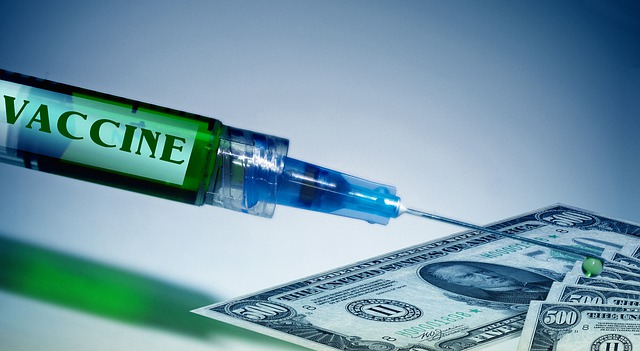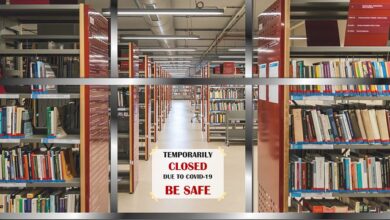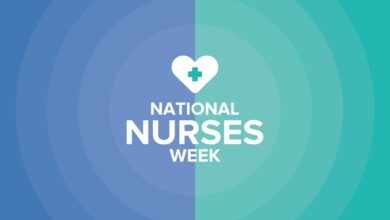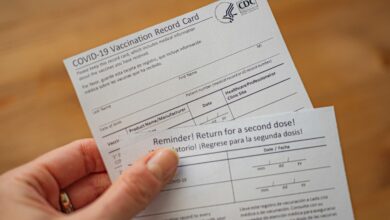If you and your family are anxiously looking for information about a potential vaccine for the coronavirus that is currently devastating the global population, a team of researchers affiliated with one of the country’s largest medical companies may have just the good news you have been waiting for.
On March 30, 2020, during a post-earnings conference call with investors, executives of the pharmaceutical and medical research company Johnson & Johnson announced that it had narrowed down viable candidates for a COVID-19 vaccine to a single leading strain, with two promising back-ups.
In January, the company partnered with the Biomedical Advanced Research and Development Authority, Harvard Medical School’s Beth Israel Deaconess Medical Center, and the Rega Institute for Medical Research at the University of Leuven in Belgium to use the Janssen Pharmaceutical Company’s AdVac and PER.C6 technologies to begin exploring possible immunizations to prevent the disease caused by the highly virulent coronavirus.
Johnson & Johnson (J&J) has used the same technologies to produce its vaccines for Ebola, RSV, HIV, and Zika. This landmark development is critical in the fight against coronavirus, which currently has no approved and confirmed treatment or cure.
COVID-19 first appeared in the Chinese city of Wuhan in December 2019 and has rapidly spread around the globe, infecting over 2 million people and killing nearly 145,000 people as of April 16, 2020 according to data compiled by Johns Hopkins University. While some protective measures can be taken to slow the spread of the virus—such as practicing conscientious social distancing, observing good personal hygiene and hand-washing, and wearing protective face masks and gloves when in public—there remains no proven vaccine to protect one from contracting the disease.
Now, however, with a leading vaccine candidate identified in preclinical testing, the team of researchers from J&J are prepared to enter Phase 1 human clinical studies no later than September 2020. If all of the testing proceeds as expected, the company has indicated that it is expecting to release the first round of the vaccine publicly and under a not-for-profit basis in early 2021 under an emergency use authorization from the U. S. Food and Drug Administration. Such a release date would represent a considerable acceleration of the usual schedule for vaccine development, which can often take five to seven years. Assuming that the clinical trials are successful, J&J states that it can have between 600 million and 800 million doses ready before the end of April 2021 and up to 1 billion doses by the end of the year.
In order to achieve this rapid success, J&J, together with the U. S. Department of Health and Human Services’ Office of the Assistant Secretary for Preparedness and Response have invested into the research, development, and testing process more than $1 billion. In addition, J&J has scaled up and mobilized its global team of scientists, laboratories, and other materials to advance the essential work of developing antiviral solutions to eradicate the coronavirus. It has also announced plans to open later this year a brand new vaccine manufacturing facility in the United States that will produce 300 million of the doses.
The researchers were able to make such good progress by collaborating with partners around the globe in February 2020 to screen the antiviral molecules in Janssen’s vast archive in order to find a promising candidate for a coronavirus treatment.
The effect of the announcement had a quick effect on J&J’s stock value and prompted the company to increase its quarterly dividend payment. Its reported financial performance for the first quarter of 2020 quickly surpassed the expectations of most traders on Wall Street. At the same time, though, the company lowered its overall 2020 adjusted earnings forecast due to the pandemic, valuing its shares at between $7.50 and $7.90 (down from its earlier estimate of $8.95 to $9.10 per share for the year).
This is not the only research searching for coronavirus vaccines. On March 16, 2020, the biotech company Moderna partnered with the U. S. National Institutes of Health to advance a trial drug to the clinical human testing phase. Around the same time, in China, the firm CanSino, in partnership with China’s Institute of Biotechnology at the Academy of Military Medical Science, entered the clinical testing phase for its recombinant vaccine. In an unprecedented show of shared scientific focus, from the U.S. to China to Germany and elsewhere around the globe, more than 20 other companies or institutes are also hard at work searching for a vaccine, including Entos Pharmaceuticals, the University of Oxford, Roivant Sciences, and Tizania Life Sciences. This month, the company Inovio plans to launch clinical testing of its DNA-based vaccine INO-4800, which the company says could be available in 1 million doses by the end of 2020. All of this research is currently at various stages, but it is hoped that having so many different teams working simultaneously on different approaches will help more quickly find a reliable, safe, and effective vaccine for this terrible disease.






